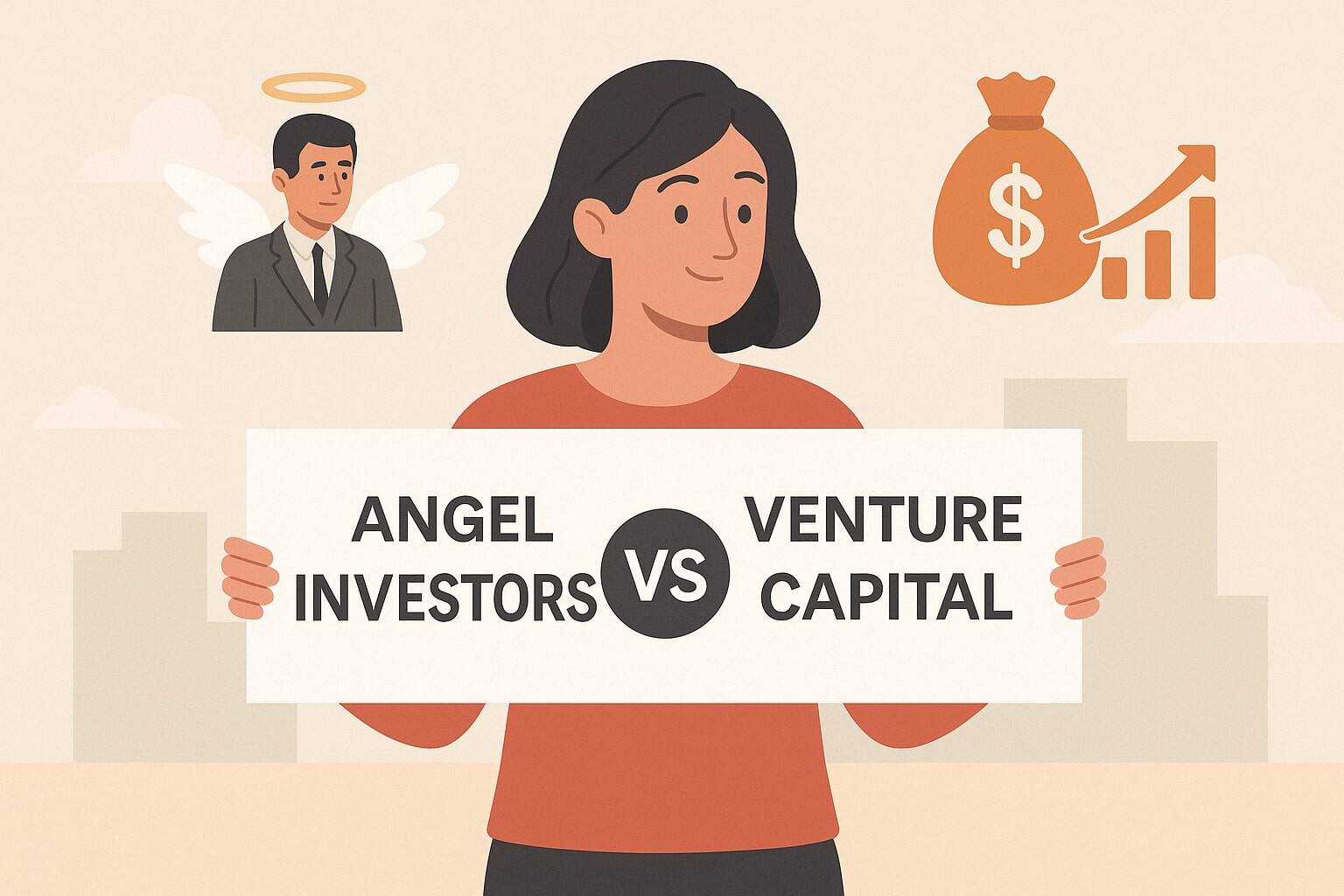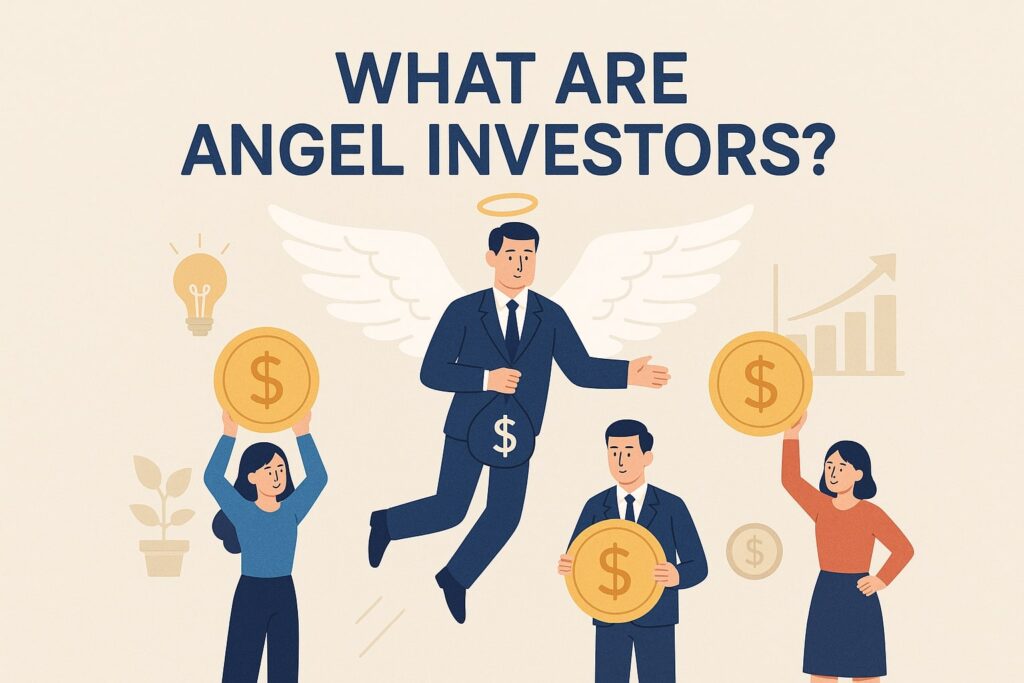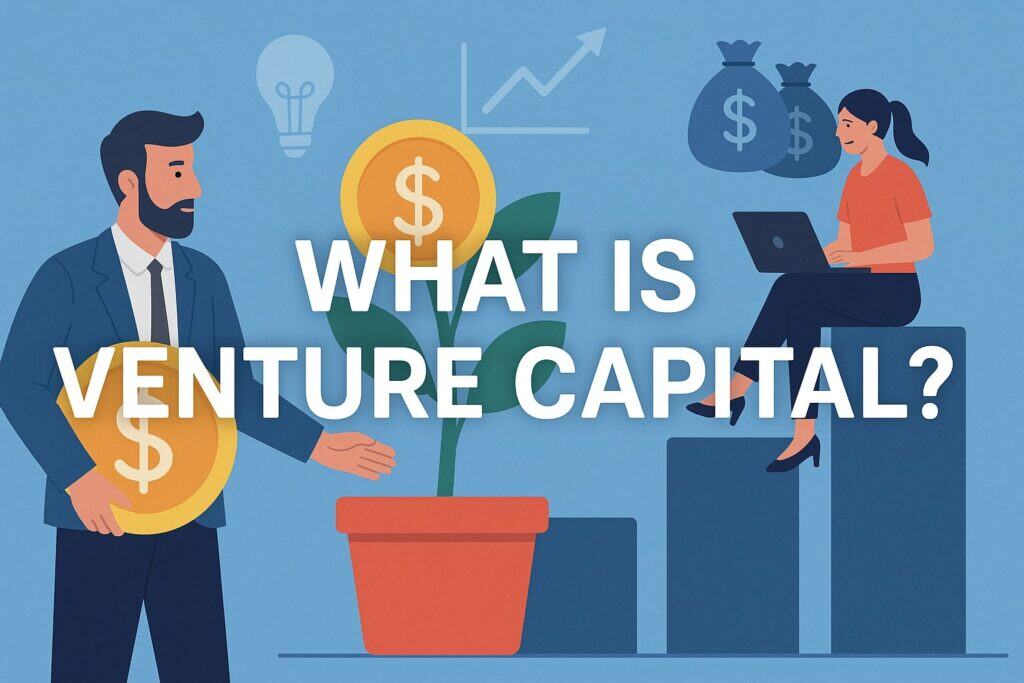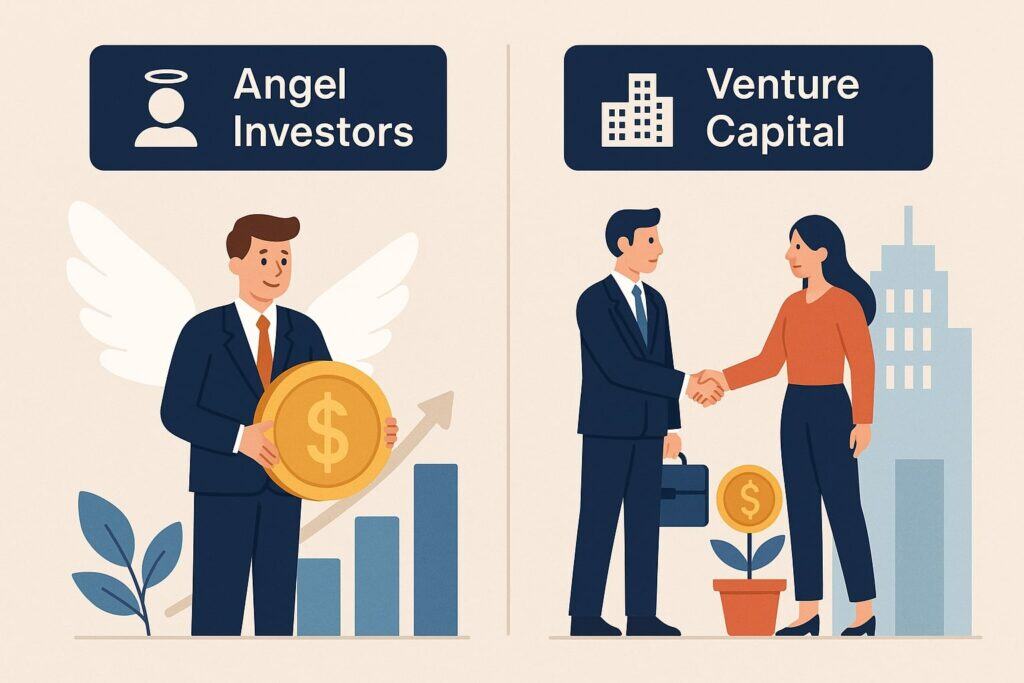
Angel Investors vs. Venture Capital: What’s Best for Startups?
When entrepreneurs set out to build a startup, one of the most pressing questions is how to fund the journey from idea to execution. While bootstrapping is often the first step, scaling a company usually requires external funding.
Two of the most common sources are angel investors and venture capital (VC) firms. Both bring money, but they differ in structure, motivations, expectations, and long-term implications for the founder and the business. Understanding these differences is crucial for making the right choice at the right stage of growth.
What Are Angel Investors?

Angel investors are typically high-net-worth individuals who invest their personal funds into early-stage startups in exchange for equity or convertible debt. They are often entrepreneurs themselves, retired executives, or professionals with disposable income who want to diversify their portfolio while supporting innovation.
Angel investors usually invest in the seed or pre-seed stage, when a business is little more than an idea, a prototype, or a small team testing product-market fit. At this point, banks and traditional lenders won’t take the risk, and venture capitalists often consider the business too early to justify their involvement. This is where angels step in.
Beyond money, angel investors often bring mentorship, networks, and strategic advice. Because their decisions are personal, they may be influenced by passion for an industry, belief in the founder, or interest in disruptive technology rather than strict financial models.
Typical angel investments range from $10,000 to $500,000, but groups of angels (angel networks) may pool resources to invest larger sums.
The key benefits of angel investors include flexibility, accessibility, and speed. Negotiations tend to be simpler compared to VC deals, and angels may not demand board seats or heavy control.
However, they still expect returns, typically seeking a 5x–10x payoff within 5–7 years. For founders, the trade-off lies in equity dilution—giving up a piece of ownership early when the company’s valuation is still low.
Angel investing is often seen as the “first believer” money—a vote of confidence that helps startups survive long enough to attract venture capital later.
What Is Venture Capital?

Venture capital is professional, institutional investment managed by firms that raise money from limited partners (LPs) such as pension funds, insurance companies, or wealthy individuals. Unlike angels who invest personal wealth, VCs manage a fund with specific mandates, investment horizons, and return expectations.
VCs typically invest at later stages than angels, such as Series A, B, or beyond, when the startup has traction—revenue, a proven business model, and clear market potential. Investments often range from $1 million to $50 million or more, depending on the stage and the size of the fund.
Unlike angels, VCs don’t just write checks—they actively shape company strategy. They often demand board seats, voting rights, and veto powers over major decisions. Their goal is to scale startups into unicorns, leading to massive returns upon IPOs or acquisitions.
Because they are accountable to their LPs, VCs are more metrics-driven and less emotionally invested than angels.
The biggest advantage of venture capital is growth acceleration. Startups backed by VCs gain not only financial resources but also industry expertise, top-tier talent connections, and credibility in the market.
On the downside, founders often give up more control, face intense growth expectations, and operate under pressure to achieve rapid scaling, sometimes at the expense of sustainable growth.
Key Differences Between Angel Investors and Venture Capital

While both angels and VCs provide funding, their approaches, expectations, and implications for startups differ significantly:
- Stage of Investment
- Angels: Pre-seed, seed, and early stage.
- VCs: Later stages, usually after some traction.
- Angels: Pre-seed, seed, and early stage.
- Investment Amounts
- Angels: $10,000–$500,000 (sometimes up to $1M).
- VCs: $1M–$50M+, depending on stage and fund size.
- Angels: $10,000–$500,000 (sometimes up to $1M).
- Risk Tolerance
- Angels: High-risk appetite, investing in unproven ideas.
- VCs: Prefer validated business models, even if still risky.
- Angels: High-risk appetite, investing in unproven ideas.
- Decision-Making
- Angels: Personal, fast, flexible.
- VCs: Committee-driven, structured, slower.
- Angels: Personal, fast, flexible.
- Control and Influence
- Angels: Less demanding in governance.
- VCs: Often require board seats, voting rights, and significant control.
- Angels: Less demanding in governance.
- Return Expectations
- Angels: Hope for strong returns but may settle for moderate exits.
- VCs: Seek 10x–100x returns, pushing for billion-dollar outcomes.
- Angels: Hope for strong returns but may settle for moderate exits.
Understanding these differences helps startups decide whether they need a believer (angel) or a scale-up partner (VC).
Pros and Cons of Angel Investors
Angel investors bring many advantages for startups at the beginning of their journey:
Pros
- Speed and Simplicity: Decisions are quicker, with fewer bureaucratic hurdles.
- Mentorship: Angels often provide hands-on advice and industry insights.
- Networking: Access to connections in industries, media, and future funding sources.
- Flexibility: Terms may be more founder-friendly than institutional investors.
Cons
- Limited Funds: Angels can only invest so much; scaling requires larger investors later.
- Dilution Risk: Giving away equity too early can hurt founders in later rounds.
- Diverse Motivations: Angels may be emotionally attached, which can complicate business dynamics.
In short, angel investors are best for early survival, credibility building, and initial growth. But startups eventually outgrow angels as they need larger rounds to expand.
Pros and Cons of Venture Capital
Venture capital funding is the dream for many entrepreneurs, but it comes with trade-offs:
Pros
- Massive Capital Infusion: Enables rapid scaling into new markets.
- Resources and Expertise: Access to advisors, lawyers, recruiters, and marketers.
- Market Validation: Being VC-backed signals legitimacy to customers, employees, and media.
- Exit Opportunities: VCs push for IPOs or acquisitions, creating paths to liquidity.
Cons
- Loss of Control: Founders may lose decision-making power.
- Pressure to Scale Fast: Growth is prioritized over sustainability.
- Dilution: Founders give up significant equity stakes.
- Tough Selection: Only a small percentage of startups secure VC funding.
Venture capital is best for startups that want to dominate markets quickly and are comfortable with aggressive growth.
Which Is Better for Startups?
The answer depends on the stage of the business, the founder’s goals, and the type of industry.
- If you are at the idea or prototype stage, angel investors are often the only realistic option.
- If you’ve proven demand and need to scale aggressively, venture capital may be the right fit.
- If you value control and independence, angel investors may align better.
- If your dream is to build a unicorn and go public, VCs bring the resources to make it happen.
Ultimately, many startups go through both stages: angel investors in the beginning, followed by venture capital when ready to scale.
FAQs
Q1. Can a startup have both angel investors and venture capitalists?
Answer: Yes, and in fact, most successful startups follow this path. Angels often provide the first capital injection, helping founders validate their idea and survive the initial phase.
Once traction is proven—revenue, user growth, or product adoption—VCs step in with larger rounds. For example, companies like Uber and Airbnb started with angel money before raising billions in venture capital.
However, this progression comes with challenges. Angels may have terms that conflict with VC requirements. For example, if early angels have too much control or anti-dilution clauses, VCs may hesitate to invest later.
Founders should ensure that early deals are structured in ways that won’t block future rounds. Smart legal planning, use of convertible notes or SAFEs (Simple Agreements for Future Equity), and clear cap table management can smooth this transition.
Q2. What do angel investors look for compared to venture capitalists?
Answer: Angel investors often back founders and ideas. They look for passion, a unique vision, and early proof that the idea can become a real business. They are less focused on hard metrics and more willing to take a gamble on a team. Many angels are driven by excitement, personal experience in an industry, or the chance to mentor.
Venture capitalists, in contrast, look for scalability, traction, and financial returns. They want to know whether the business model works, if the market is large enough, and whether the startup can grow fast enough to generate massive returns.
VCs examine metrics like customer acquisition cost (CAC), lifetime value (LTV), churn rates, and revenue growth. They also assess competitive landscapes to see if the company can achieve defensibility and dominance.
Q3. Do angel investors or VCs take more equity?
Answer: Typically, angel investors take smaller percentages because they invest smaller amounts—often 5% to 20% ownership in the early stage. Venture capitalists, however, invest much larger sums and may take 20% to 40% or more of a company during funding rounds.
Equity dilution is a balancing act. Giving away too much early to angels can limit the founder’s stake when VCs come in later. At the same time, founders who refuse to give up equity may struggle to raise funds altogether.
The key is structuring deals strategically: accepting smaller checks with founder-friendly terms early, and saving larger equity blocks for VC rounds when valuations are higher.
Q4. Is venture capital always better than angel investment?
Answer: Not necessarily. Venture capital is often seen as the “holy grail” of startup funding, but it doesn’t suit every business. Some startups grow steadily without ever needing VC money. In fact, many profitable, founder-owned companies choose not to pursue VC funding to avoid the pressure of hyper-growth and exit demands.
Angel investors can provide enough funding to reach profitability, especially for startups in industries that don’t require heavy infrastructure or marketing spend.
If your goal is to build a sustainable, niche business rather than a billion-dollar unicorn, angels might be the better fit. Conversely, if you’re in a capital-intensive industry like biotech, fintech, or AI, venture capital may be essential.
Conclusion
Choosing between angel investors and venture capitalists is not about deciding which is universally better—it’s about choosing what aligns with your startup’s stage, vision, and long-term goals.
Angels are perfect for the early believers’ stage: fast, flexible funding with mentorship. VCs, on the other hand, bring institutional power, massive resources, and global scaling potential—but with stricter conditions and higher expectations.
The smartest founders don’t see it as an either/or choice. Instead, they map out a funding journey, starting with angels to launch, then moving to venture capital when the time is right.
By understanding the pros and cons of both, founders can avoid common pitfalls, maintain control where it matters, and position their startups for long-term success.